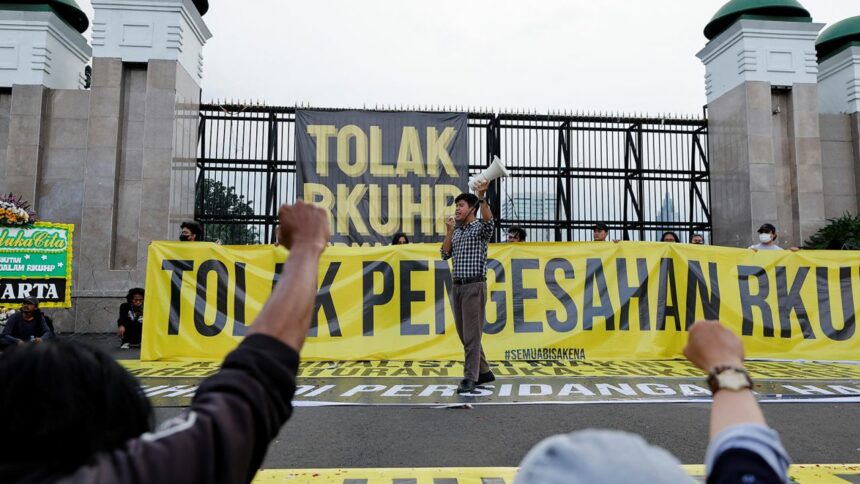The updated criminal code, which the Indonesian parliament adopted this week, is receiving the kind of attention that obscure modifications to another nation’s legal system hardly ever receive. Travelers to Indonesia are being forewarned in headlines all around the world that they risk spending up to a year in jail if they are discovered having sex or living together with someone they are not wedded to.
A nation that is frequently praised for being a pluralistic Muslim democracy is now charged with medieval moral intrusion but in reality, the situation is considerably more convoluted, and many Indonesians believe that other parts of the code pose a threat to free expression and human rights, thus they are less alarmed by the “sex prohibition” than they are by other changes. Indonesia’s legal system was brought over from the Dutch colonial era, and succeeding governments have sought to modernise and adapt it to the needs of the nation. Three years ago, a draught was given to the parliament, but it sparked significant opposition and was put on hold at the president’s suggestion.
Let’s start with the cautions issued to tourists. Although tourists are equally subject to the law as Indonesians are, it is highly unlikely that they will be impacted by the provision that says you cannot be charged with extramarital sex or cohabitation except if the accuser’s kid, parent, or spouse files a complaint.
The LGBTQ population in Indonesia, which is unable to marry and is concerned that the law would be used against them, will benefit from it far more.
Others have drawn attention to the danger that this clause will be misused in personal grudges against separated family members or by persons who hold fervently religious ideas and who cannot accept their children’s lifestyle decisions yet those worried about civil liberties are most alarmed by the other elements of the new law.
The new criminal code, according to Eva Sundari, a former member of parliament and board member for ASEAN Parliamentarians for Human Rights, “We have made great strides towards democracy since the downfall of Suharto’s dictatorship, and the new criminal code threatens to reverse that progress.”
“The government and House [of Representatives] claim to have opened room for input from civil society, but that was evidently just for the sake of appearances, as they have largely ignored objections from academics, experts and human rights defenders.”
According to Evi Mariani of the public journalism organization Project Multatuli, article 263 poses a threat to journalists and carries a four-year prison penalty for those found guilty of disseminating information that is believed to be incorrect and generating public disturbances, she called the law “a siege against freedom of expression” and claimed that as a result, “criminal charges are lurking along every path of criticism.”
The new legislation criminalises insulting the president or vice president and carries a maximum sentence of three years in prison, but only if one of the two people in office files a complaint. It makes it unlawful to hold protests without authorization.












